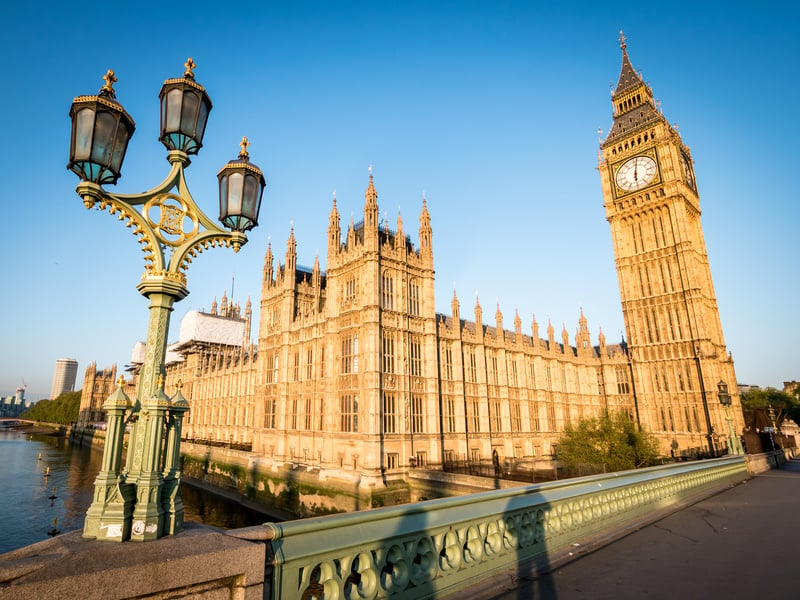On behalf of Budapest, Prague and Warsaw offices, we have great pleasure to share with you the latest edition of our CEE Pharma Newsletter, which covers recent legal developments in the pharmaceutical and medical device sectors across the Czech Republic, Hungary, Poland and Slovakia.
With a press release dated 15 October 2020, the Italian Medicines Agency (“AIFA”) announced the adoption of a new streamlined procedure on pricing and reimbursement of generic and biosimilar drugs.
The Baker McKenzie Healthcare & Life Science Industry Group presented the first of a series of short webinars sharing legal industry insights and providing practical guidance in the context of today’s evolving world. On 17-18 November 2020, the session focused on a region-by-region view of the evolving compulsory licensing regimes during the COVID-19 pandemic.
Regulatory enforcement of consumer protection law in the UK is changing, even if the UK won’t be implementing the EU’s New Deal for Consumers (New Deal). Enhancements to existing laws are set to give the Competition and Markets Authority (CMA) more tools that it can use to encourage – or force – businesses to comply.
Currently the CMA’s powers are relatively limited when it comes to consumer enforcement (compared to those available to privacy and competition regulators, for instance). Whilst the future is uncertain, recent action taken by the CMA indicates an increased willingness on the part of the regulator to take interventionist (and in some cases, aggressive) action.
In this article we draw on our experience engaging with the CMA on consumer protection matters – and consider how changes to the legislative framework and leadership at the CMA are likely to impact its approach.
Earlier last week, Sheikh Khalifa bin Zayed Al Nahyan, President of the United Arab Emirates (UAE), issued a decree introducing a number of fundamental changes to the UAE Commercial Companies Law (CCL Amendment) and to the UAE’s approach towards foreign direct investment (FDI) in general. The CCL Amendment adopted a new general rule of, in principle, allowing foreign investors to fully own certain types of companies in the mainland of the UAE.
The current UAE Commercial Companies Law No. 2 of 2015 (as amended) (CCL) was issued in 2015 and was a long awaited development. The CCL, however, maintained many of the foreign investment restrictions of its predecessor.
In 2018, the Decree Law No. 19 of 2018 regulating Foreign Direct Investment (FDI Law) was issued with an aim to relax the investment restrictions and facilitate the establishment of companies with up to 100% foreign capital in certain strategic sectors. This was a welcome change and a milestone in the development of the UAE foreign investment rules.
On November 3, the German Federal Ministry of Justice and Consumer Protection published two draft bills for the implementation of certain aspects of the Directive on digital content and services (Directive (EU) 2019/770) and the Directive on better enforcement and modernisation of consumer protection rules (Directive (EU) 2019/2161). The Directive on digital content and services must be transposed by the German legislator into national law by July 1, 2021, which in turn must be applied beginning January 1, 2022. The Directive on better enforcement and modernisation of consumer protection rules must be transposed into national law by November 8, 2021, which in turn must be applied beginning May 28, 2022. If adopted, the draft bills will amend the German Civil Code, inter alia, supplementing the requirements for distance selling contracts, introducing new rules for consumer contracts about digital content and services, and providing for new information obligations for online market places as well as amend the Introductory Act of the German Civil Code by introducing a new administrative fine for violations of certain consumer protection law obligations.
Countries around the globe are facing unprecedented and rapid change due to the COVID-19 pandemic. The Government Intervention Schemes Guide provides a summary of key government intervention measures across jurisdictions around the globe in relation to:
Foreign Investment Restrictions
Debt
Equity
Taxation
Insolvency
EU State Aid Approvals, where relevant
The Czech parliament is adopting a new regulation with respect to the registration of ultimate beneficial owners (i.e. persons with ultimate decisive influence on or with ultimate economic benefit from the company) (“UBO”). Although the obligation of companies to register their UBOs has already existed for some time under the Czech regulatory regime, it has shown to be insufficient in practice as the absence of any penalties or sanctions has led to the vast majority of business corporations still neglecting this obligation to register their UBOs.
The new regulation will maintain the obligation to evidence the UBO in the register, but it will also impose a variety of sanctions on companies not compliant with the new UBO regime. We expect such changes to be adopted in the next few months.
In a set of coordinated statements, LIBOR’s administrator, LIBOR’s principal regulator and the principal US banking regulators announced plans that would extend the period during which panel USD LIBOR quotations would be made available until the end of June 2023. This would effectively provide a period for legacy USD LIBOR transactions to use LIBOR quotations for certain tenors after 2 January 2022 (when LIBOR is expected to cease for other currencies).
On 5 October 2020, the Parliament approved the job creation law (RUU Cipta Kerja, commonly known as the “Omnibus Law”). The Omnibus Law amends a number of existing laws. On 5 October 2020, the Parliament approved the job creation law (RUU Cipta Kerja, commonly known as the “Omnibus Law“). The…



